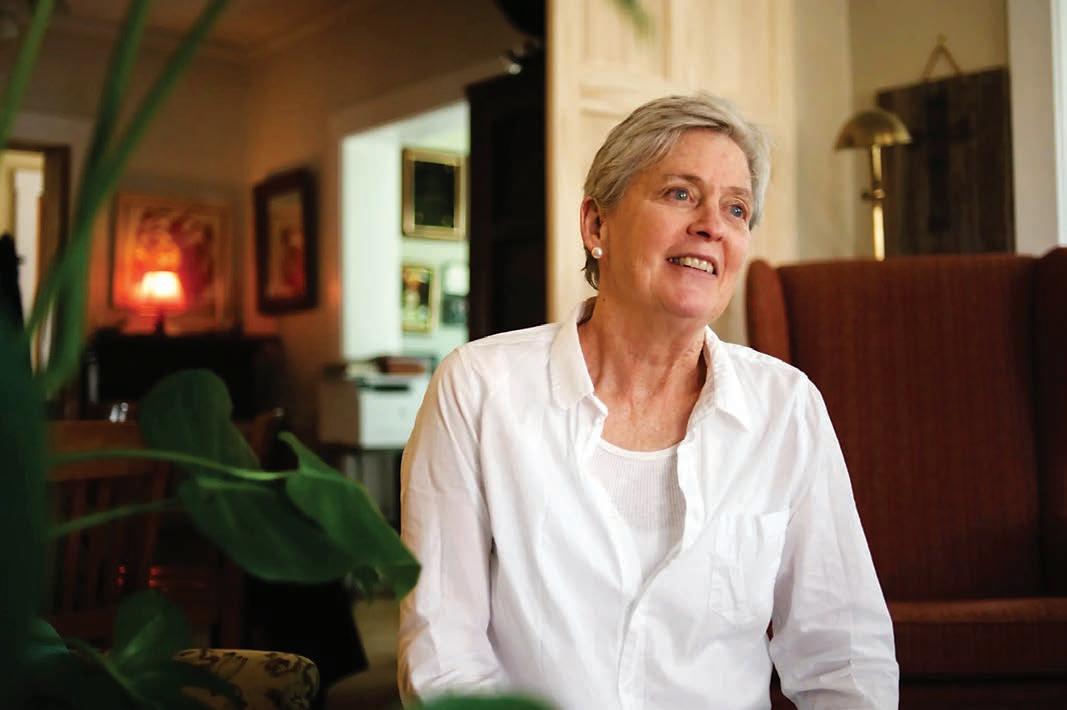
2 minute read
Jeannie Ritter is still working to break mental health stigma
BY JENNIFER BROWN THE COLORADO SUN
Jeannie Ritter jokes that she could have chosen bicycle helmets as her “ rst lady cause” while her husband, Bill, was Colorado governor. At least she could have counted the number of children who received a helmet and declared her goal achieved.
Instead, the former teacher who grew up in a family a ected by severe mental illness, chose something much messier. She spent four years traveling Colorado to talk about mental health, ditching the pantsuits early on for a jean jacket and cowboy boots, all part of her plan to seem more approachable and get people to open up about their struggles.

When the Ritters left the governor’s mansion in 2011, the former rst spouse continued her mission, becoming a mental health ambassador for WellPower, which is Denver’s community mental health center. For the next decade, she spoke to clubs and forums across the state, and co-chaired a task force that helped rewrite Colorado’s civil commitment laws. Ritter, 64, recently retired, but remains an advocate for increased access to mental health care.
In an interview with e Sun at her home in Denver’s Platt Park, Ritter praised a new law signed by Gov. Jared Polis that will allow psychologists to write mental health prescriptions. She also explained how arti cial intelligence software could help overworked therapists determine which messages are the most urgent based on the stress in a caller’s voice.

Ritter is credited with elevating the conversation, quite literally, at a time when “mental health crisis” wasn’t a universal topic. When her husband took o ce in 2007, she attended mental health policy discussions in churches and basements. Later, she said, she was pushing the elevator button to the “highest oor in the building, like oor 12” to talk to executives and policymakers.

Ritter spoke to e Sun about what’s become a lifelong goal to break stigma and build access to mental health care in Colorado. Here is part of that conversation, edited for length and clarity.



SUN : Like many others, when Ritter talked about the importance of mental health reform, she referenced one person in her family with severe illness. en she realized a year or so after becoming Colorado’s rst spouse that she was thinking about it all wrong.
Ritter’s sister had been diagnosed with bipolar disorder, and the family grew up navigating mental hospitals, medications and stigma. After their mother died, Ritter took over caring for her sister, and even moved her and her two Chihuahuas into the governor’s mansion to help get her stabilized.
RITTER : I have a correction to make because during that time, I often cited my sister, who had a diagnosis. We were a family that navigated that whole thing. Institutions were new again, and the meds, and just the severity of her illness and how it impacted each of us.









